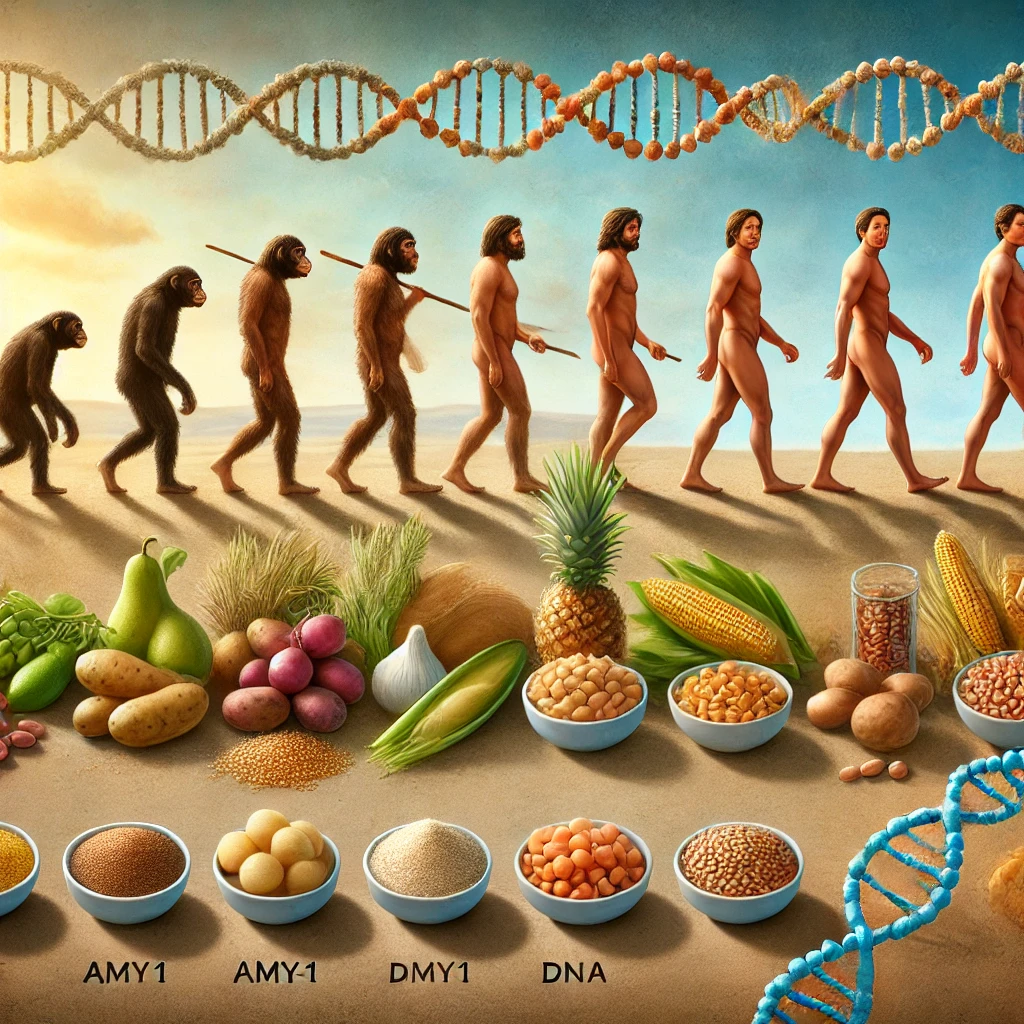Imagine this: humans have been eating carbs like potatoes, beans, and grains for nearly a million years. Why? Because we’re actually genetically built to digest starchy foods. Recent research published in Science reveals that our carb-loving genes could have developed over 800,000 years ago — long before farming began.
So, what’s the science behind it? When we eat carbs, an enzyme called amylase starts breaking them down right in our mouths. Humans carry multiple copies of the AMY1 gene, which is responsible for producing amylase, helping us break down starch into energy. The more AMY1 copies, the better our bodies have become at digesting carbs, which may be why humans across the globe have developed a taste for starchy foods. For comparison, ancient populations from Eurasia had about 4–8 copies of AMY1, even back when they relied on hunting and gathering. Over time, as farming spread, people acquired even more copies to handle their carb-heavy diets. Interestingly, even animals like dogs that lived close to humans developed more of these carb-digesting genes!
But here’s the twist: while our genes adapted for survival in carb-rich environments, today’s processed carbs bring new challenges. Modern diets are full of “empty” carbs, which are high in calories but low in nutrients, and these can impact health differently than whole, unprocessed starches. Researchers are still studying if people with more AMY1 copies might have a higher risk of high blood sugar or carb cravings, but there’s still no clear answer.
In short, our love of carbs is built right into our DNA! While it helped early humans survive, it may be worth rethinking our relationship with carbs in today’s world of ultra-processed foods.




